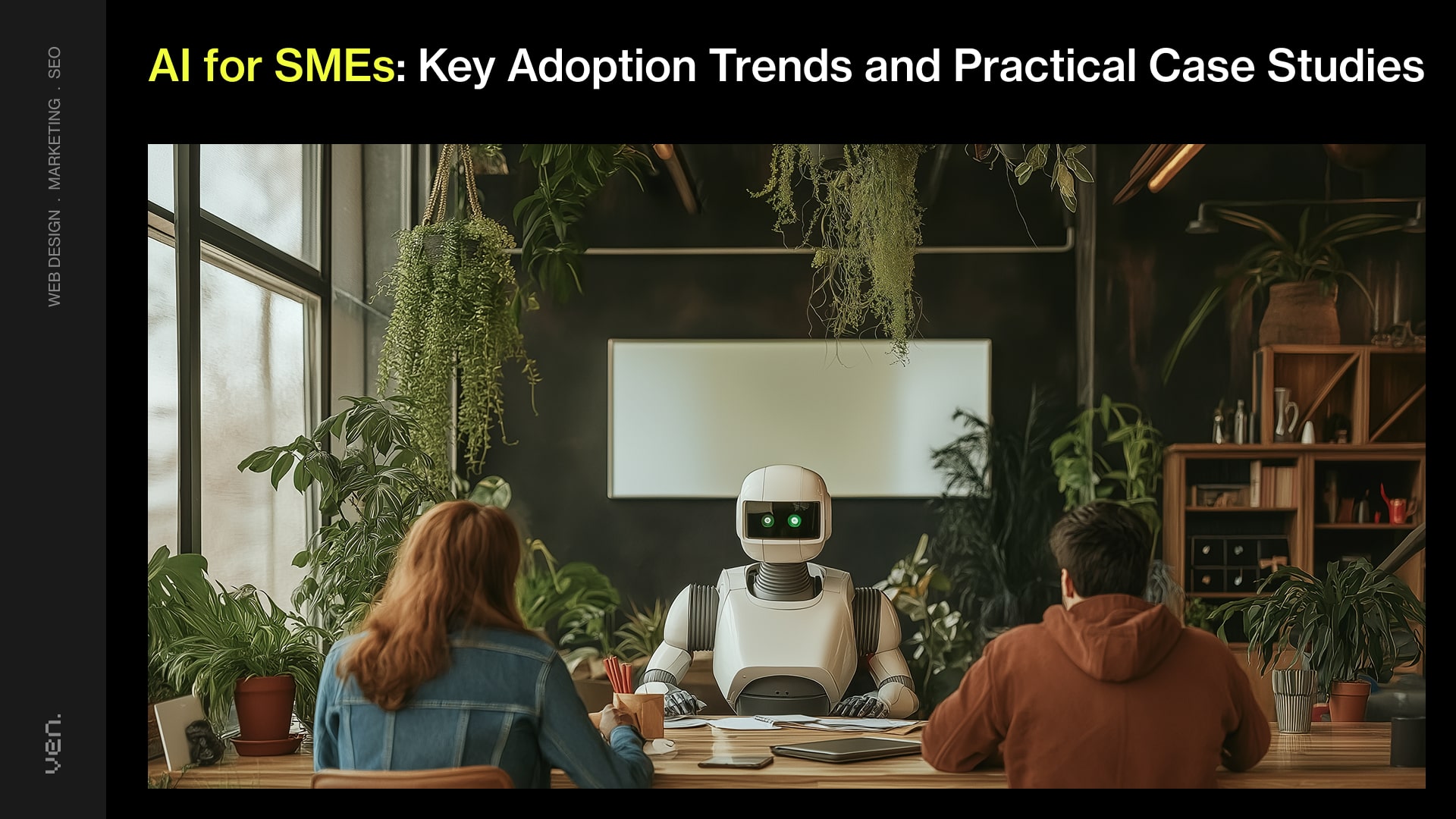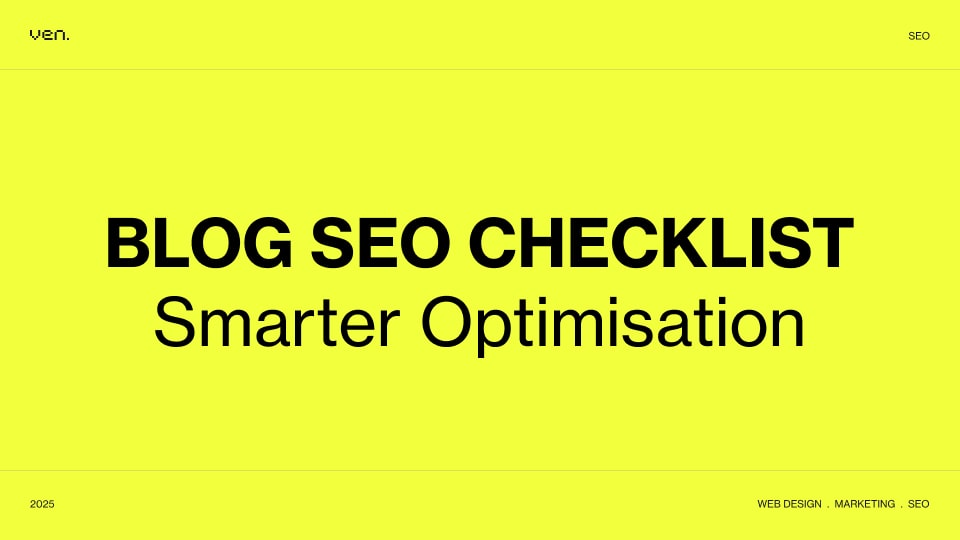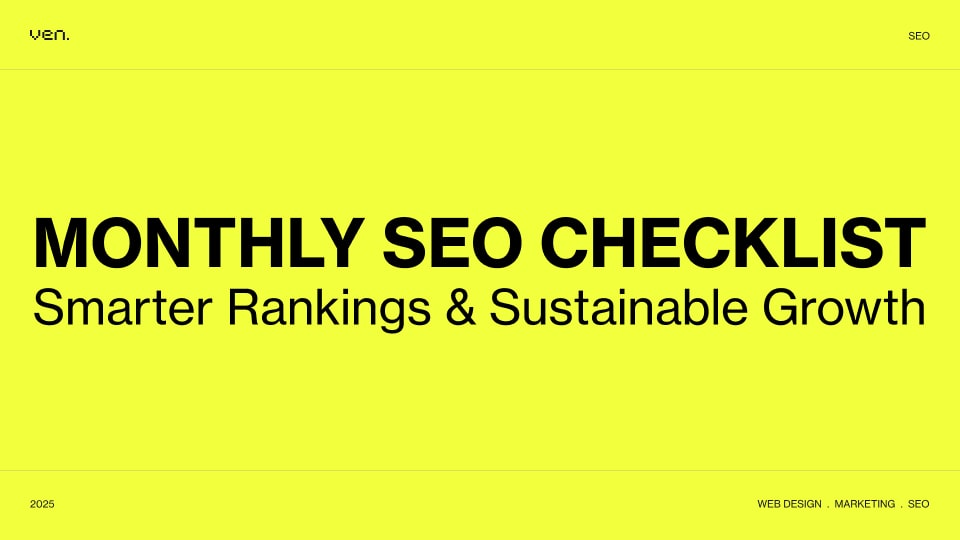Artificial Intelligence (AI) has rapidly evolved into a game-changing technology, offering businesses of all sizes innovative tools to streamline operations and enhance customer experiences. For small and medium-sized enterprises (SMEs), AI adoption is no longer a luxury but a necessity to stay competitive in a dynamic marketplace. In this comprehensive guide, we’ll explore why SMEs should adopt AI, examine the latest trends in 2024, and showcase practical case studies across various industries.
Table of Contents
Why Should SMEs Adopt AI?
The business landscape has transformed dramatically in recent years, with AI becoming increasingly accessible to organisations of all sizes. For SMEs, implementing AI solutions offers several compelling advantages:
Enhanced Efficiency and Productivity
AI automation tools significantly reduce manual tasks, allowing staff to focus on strategic initiatives and creative problem-solving. This shift not only increases productivity but also enables SMEs to operate with the efficiency of larger enterprises.
Data-Driven Decision Making
AI empowers SMEs to make informed decisions based on sophisticated data analysis, helping them identify trends, predict market changes, and optimise operations with greater accuracy than traditional methods.
Improved Customer Experiences
By leveraging AI-powered solutions, SMEs can deliver personalised experiences at scale, responding to customer needs more effectively and building stronger relationships with their target audience.
Practical AI Case Studies
“This all sounds great, but how does it work in the real world?” – You may ask yourself. Well, let’s take a look at some practical examples of how SMEs are using AI in marketing. It’s like a behind-the-scenes tour, but without the need for a visitor’s pass.
Product Ideation and Photography
AI is transforming product photography for SMEs through:
- AI-generated backgrounds and image enhancement
- Virtual product mockups for clothing and accessories
- Realistic product visualisation from basic inputs
Consider the success story of Someone Somewhere, a Mexican startup that leveraged AI-generated imagery to accelerate product development and secure global partnerships, including a major contract with Adidas. Another inspiring example is Nutella Unica’s campaign, which used AI to create 7 million unique packaging designs, demonstrating the power of AI in creative marketing.
Let’s look at another real-world examples: Nutella Unica . They used AI to create packaging, using a dozen patterns to create 7 million one-of-a-kind labels as unique and expressive as Italian people are. It’s like giving each jar of Nutella its own personality!
In the term of product photography and introductory videos, SMEs now have access to a range of AI software to assist them, including tools like Pebblely.

Image: Pebblely
Personalised Ads
AI is revolutionising how SMEs approach targeted advertising. Carrefour Taiwan’s success story highlights this potential, achieving a 25% boost in conversions and 30% revenue increase through AI-powered personalisation and strategic coupon offerings based on user behavior.
Google is now a leader in this field, in 2024, they collaborated with Lipton to deliver a highly successful personalised video ad campaign during Ramadan. The results were remarkable: the campaign reached 6 million people on YouTube, achieving a total of 19 million video views. Furthermore, it drove an impressive 8.4% increase in brand recall. (Source)
Content Creation
SMEs are using AI to enhance their content strategy:
- Content ideation and outline generation
- Automated transcription and editing
- Image and video content creation
- SEO optimisation
ClickUp’s success with AI-optimised content demonstrates the potential, having achieved an 85% increase in organic traffic through AI-enhanced SEO strategies.
Data Analysis and Decision Making
SMEs like Medically Home are using AI to analyse customer data and improve decision-making processes. The startup’s success in healthcare demonstrates how AI can provide real-time insights that drive better outcomes.

Chatbots
H&M’s Kik chatbot showcases how SMEs can leverage AI for customer service, providing personalised fashion advice and recommendations through natural language processing.
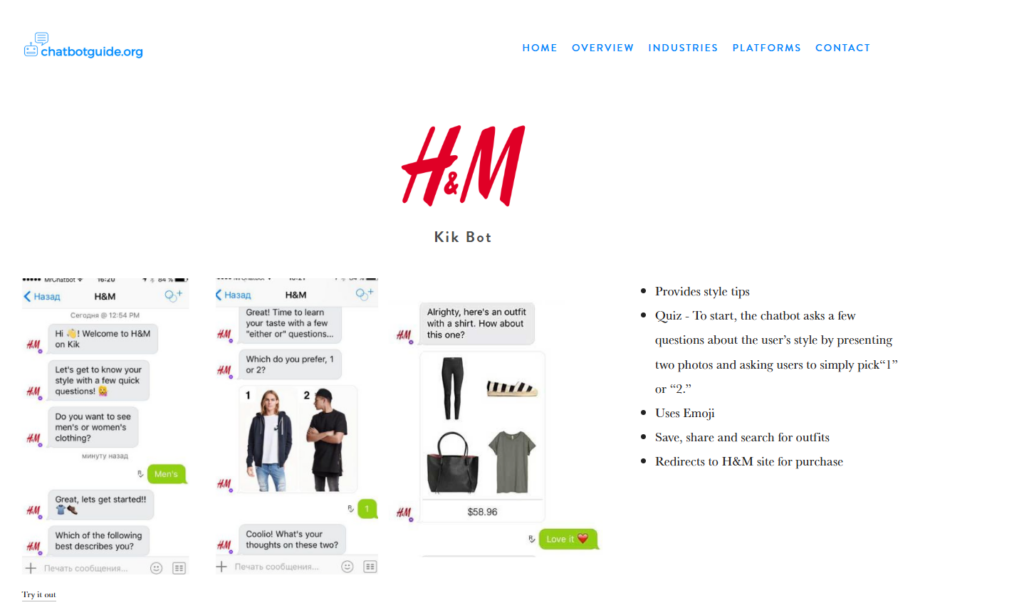
Supply Chain Optimisation
Stitch Fix exemplifies how AI can transform supply chain management for SMEs, using predictive analytics for inventory management and demand forecasting to optimise operations.

Financial Management
AI is helping SMEs streamline financial operations through:
- Automated expense tracking
- Advanced fraud detection systems
- Predictive financial modeling

Real-world example: Xero, a popular accounting software used by many Australian SMEs, uses AI to automate bank reconciliation and suggest account codes for transactions. It’s like having a robot accountant, but without the boring small talk.
Human Resource and Recruitment
SMEs are using AI to revolutionise HR processes through:
- Optimised recruitment and hiring
- Enhanced employee engagement tracking
- Personalised learning and development programs
- Automated HR service delivery
Unilever has integrated artificial intelligence (AI) into its recruitment and training processes to enhance efficiency and effectiveness. The company processes approximately 1.8 million job applications annually, utilising AI to streamline the initial stages. Candidates engage in games assessing their aptitude, logic, and reasoning, with machine learning algorithms evaluating their suitability by comparing profiles to those of successful employees. This approach has reduced the hiring process from four months to four weeks, saving around 50,000 hours of labor.
Predictive Maintenance
AI algorithms are helping SMEs predict equipment maintenance needs, reducing downtime and improving reliability through:
- Equipment monitoring systems
- Quality data analysis
- Predictive maintenance scheduling

Image: assemblymag.com
Real-world example: Toyota employs AI to monitor and maintain its welding robots in factories. Using computer vision and deep learning, the AI analyses images and videos of the robots’ welding processes to detect defects. It also suggests optimal welding parameters and alerts operators when maintenance or replacement is needed, helping Toyota reduce inspection time by 70% and improve quality by 10%.
Legal Document Review
AI is transforming legal document management for SMEs with capabilities including:
- Automated document review and summarisation
- Contract generation and drafting
- Legal analysis and interpretation
- E-discovery support

Casepoint’s AI-powered eDiscovery solution has enabled an Am Law 200 firm to decrease document review time by over 90%, allowing legal teams to focus on more strategic aspects of their cases.
What next: Key Trends in AI Adoption for SMEs
Now that we’ve covered the ‘why’, let’s talk about the ‘how’. What are the cool AI trends that SMEs should be keeping an eye on in 2024? Buckle up, because the future is looking pretty exciting!
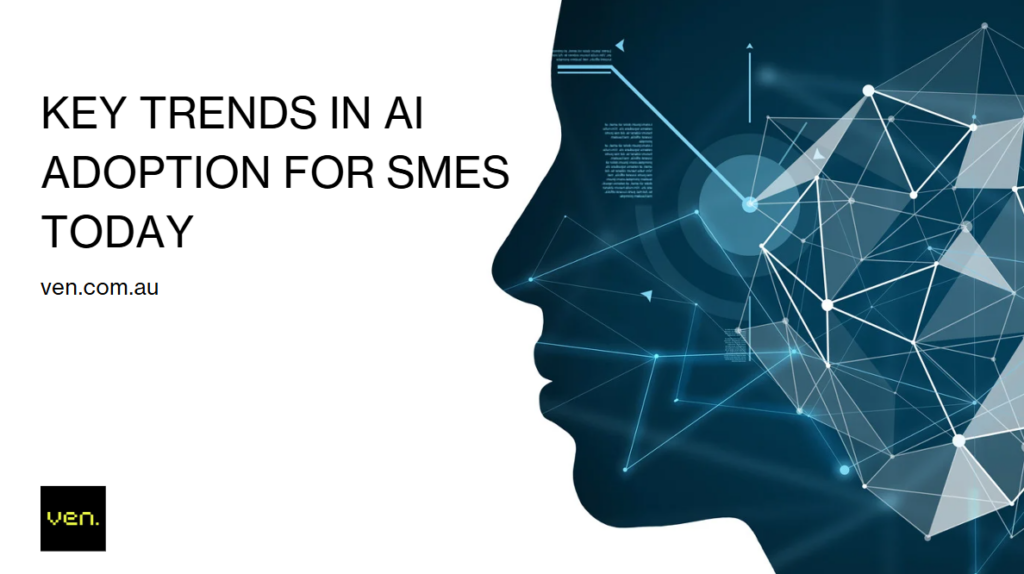
Advanced Machine Learning Algorithms
SMEs are increasingly utilising cutting-edge machine learning to analyse complex data patterns, optimise decision-making processes, and improve operational efficiency across all business functions.
Natural Language Processing (NLP)
NLP technology is revolutionising customer service for SMEs through intelligent chatbots and automated support systems that provide 24/7 assistance while maintaining a personal touch.
AI-Powered Automation
From routine administrative tasks to complex operational processes, AI automation is helping SMEs reduce costs, minimise errors, and enhance overall productivity.
Predictive Analytics for Business Intelligence
SMEs are leveraging predictive analytics to forecast market trends, optimise inventory management, and make data-driven decisions that drive growth and competitive advantage.
AI in Cybersecurity
As digital threats evolve, AI-powered security solutions are becoming essential for SMEs, offering real-time threat detection and automated risk mitigation strategies.
Conclusion
The adoption of AI technologies is no longer optional for SMEs looking to remain competitive in 2024 and beyond. Through strategic implementation of AI solutions, small and medium-sized businesses can enhance their operations, improve customer experiences, and drive sustainable growth. The case studies presented demonstrate that with the right approach, SMEs can successfully leverage AI to achieve remarkable results, regardless of their size or industry.
